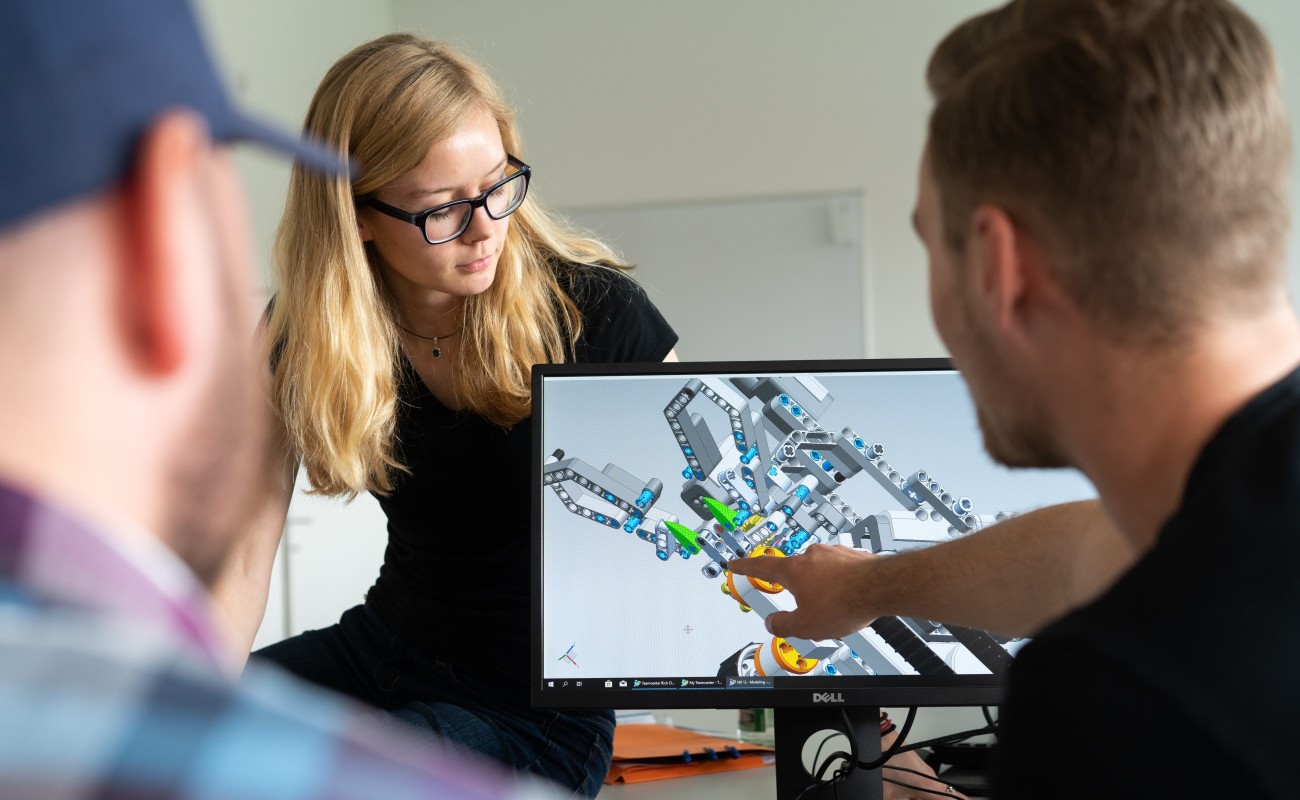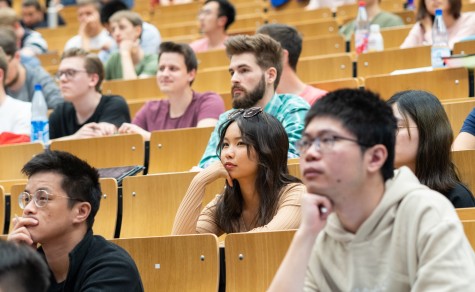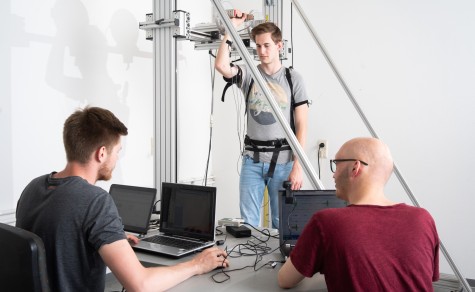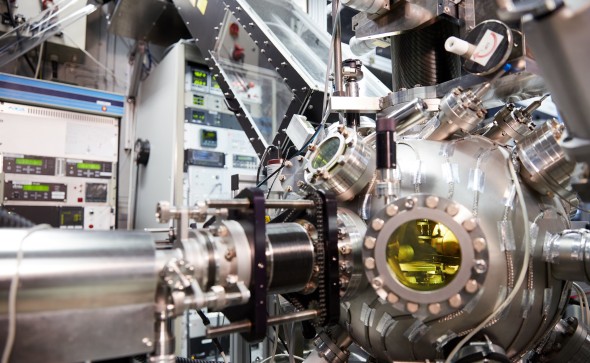Published:
About cars and gears…
“Mechanical engineering” – the words say it all… you develop and construct all kinds of machines. And after you graduate, you can work in the automotive industry or for a hidden champion, who manufactures gears or screws. Most people have a certain image of mechanical engineering in their mind, but I didn’t realise that there is so much more to it than that until I started at the TU Darmstadt.
Sustainable energy supply, innovative flight systems, modern paper manufacturing, 3D printing processes and autonomous driving – all these aspects are a part of mechanical engineering. Developing innovative solutions today for tomorrow's world is the goal of the Department of Mechanical Engineering at the TU Darmstadt. And that’s plain to see! From day one, you work together as a team to solve current issues! The good thing is: You'll notice pretty quickly which area of mechanical engineering you like best. For me, it's energy and power plant technology – these topics are not only trendy, but also really political – a great combination!
Stefan,
Mechanical Engineering B.Sc.
My father studied mechanical engineering at the TU Darmstadt over 30 years ago! But since then a lot has happened! Sure, the mechanical basics are the same – but today nothing works without computer science and electrical engineering!
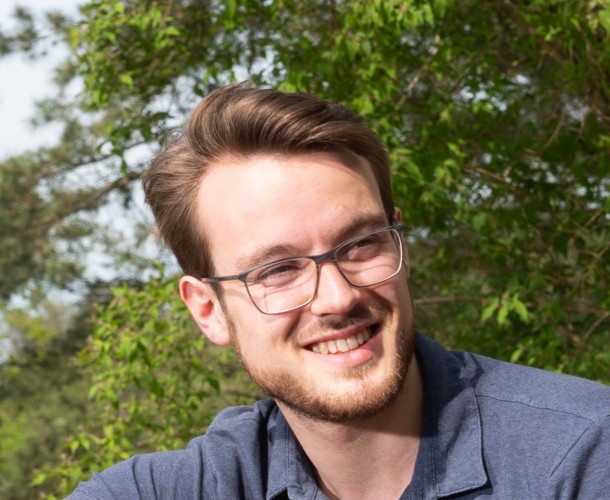
At a glance: Mechanical and Process Engineering (B.Sc.) at the TU Darmstadt
The bachelor’s degree programme in mechanical and process engineering (B.Sc.) is divided into six semesters, which corresponds to a standard period of study of three years. Throughout the curriculum, you will receive a broad and well-founded education. Especially in the first semesters, there is a strong focus on mathematical and mechanical basics. However, your curriculum also includes exciting subjects, such as computer science, materials science, mechatronics, computer-aided design, and thermodynamics.
During the course of the programme, you must apply your theoretical knowledge to the real world through various projects.
You can then apply your knowledge in the context of various project work during the programme. The first semester begins with an interdisciplinary project and later you do an internship and a product design project. Of course, these tasks are completed under close supervision by the professors and tutors from the mechanical engineering department.
To understand the contents of the lectures even better and to get an insight into the day-to-day of engineers, it is necessary to do an internship at a company. You can do this before or during the programme. Maybe you will find out which area of mechanical engineering you like best! Depending on your personal interests, you can put together your favorite courses and subjects in the elective area starting in the fifth semester! Also, possible: A semester abroad at one of the many partner universities of the mechanical engineering department!
Sounds exciting? Then click here for more information about studying mechanical engineering at the TU Darmstadt or test yourself in our brand-new online assessment!
If you want to build a skyscraper, you need a strong foundation!
Regardless of whether you want to specialise in a specific subject area of mechanical engineering (we'll tell you what these are below) or prefer to study a wide range of subjects, you will first need to learn all the mathematical and mechanical basics in your first few semesters. Only if you have mastered the basics of mechanical engineering, will you be able to work on complex topics later. Sounds dry and boring? It's not boring at all!
Imke,
PhD student in Mechanical Engineering
I did an internship in Luxembourg during my master’s degree and realised how important the theoretical knowledge from my bachelor's degree was. I loved the fact that you could then apply and deepen this knowledge in the real world.
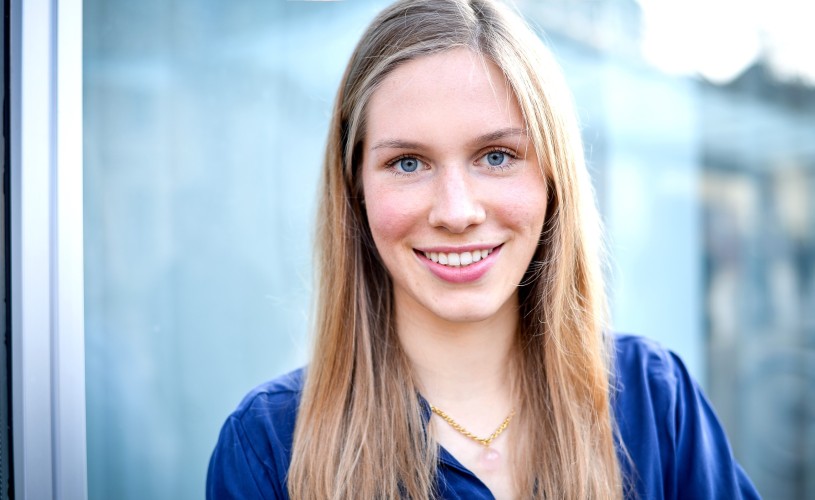
For example, there is a class everyone takes in the first semester called "Introduction to Mechanical Engineering.” Over a period of one week, you will work to solve a current problem in teams of eight or nine people. Last year, students tackled how drones can be used to transport medical goods for the Red Cross. Participants were not only mechanical engineering students, but also from the mathematics department. It is a great opportunity to meet new people outside your own programme and to learn from others.
The coolest project I have done was the so-called Advanced Design project. For six weeks, my fellow students and I analysed the upper body movement of a motorcyclist while riding. In order to do this, we set up a test area at the TU Darmstadt airfield and bought new sensors for it – this was possible because the project was funded by the EU. Then we started the test phase of the project which meant riding your motorcycle over the airfield on a beautiful summer's day, collecting and evaluating data! That was a lot of work, but also a lot of fun!
- Stefan Hackelbörger –
Looking beyond the horizon!
Interdisciplinary studies not only sound fancy but are an essential part of the mechanical engineering programme at the TU Darmstadt. From day one up until you finish your thesis, you work closely with other departments and students! For example, I wrote my bachelor's thesis at the Department of Mechanical Engineering and the Department of Electrical Engineering and had not just one, but two supervisors. The coordination was no problem at all and I was able to get to know a different area of the university. In fact, there are a few students, who write their theses in different departments, e.g. with an additional focus on mathematics or computer science. This not only looks good on your resumé, but also prepares you for your professional life. After all, forward-looking solutions for our society can only be developed if you work together with experts from all areas!
Shaping the future together
Making a difference and making a positive contribution to society – the Department of Mechanical Engineering is currently proving that this is possible even during your time at the TU Darmstadt. At the moment, protective masks for the treatment of corona patients are really hard to come by! That's why the Mechanical Engineering and Architecture departments at the TU Darmstadt have joined forces and are now printing 50 reusable full-face masks on 3D printers every day, which are then delivered to hospitals! At the same time, the Centre for Construction Materials at the TU Darmstadt is helping the Alice Hospital by analysing how multiple uses of face masks can be made possible while guaranteeing the strictest hygiene standards – another important contribution to saving resources and easing supply bottlenecks for medical face masks.
Of course, these are just two of many examples that show what can be achieved with cooperation. And of course, not all further developments get as much attention. In my specialisation, energy and power plant technology, this perhaps means that we develop a mechanism that increases energy efficiency by a few percent! It may not sound particularly outstanding at first, but it does have a major impact if we want to secure the energy of the future and become climate neutral. The possibilities in mechanical engineering are unlimited, regardless of whether you want to work in research or business.
Corona has disrupted life as we know it, but it also offers great opportunities for research. We are now investigating the effects of corona on the city of Darmstadt as part of a research project of the state of Hessen. To be more precise: How can the minimum functionality of the central infrastructures, for example the communication, energy and water networks, be guaranteed in the case of special demands and how can an adaptation to the new conditions be made possible – keyword: resilience of cities! From a research point of view, this is of course extremely interesting and, due to the pandemic, particularly relevant!
- Imke Lorenz –
International industry connections
Especially if you want to work for a company after your bachelor’s or master's degree, it is very important to meet your first contacts while you are still at the TU Darmstadt. The Department of Mechanical Engineering is very well connected in this respect – not only in Germany, but also internationally! In my case with the development team of Boeing USA. Together with my fellow students, we designed an aircraft cockpit for them and were able to present it to them personally. To get feedback directly from the Boeing developers on our design was a real highlight!
For those who want to study even more internationally, the Department of Mechanical Engineering offers several different options – from exchange semesters at a partner university to internships abroad. As you can see, with a degree in mechanical engineering the world is open to you!
You want to know more about studying mechanical engineering at TU Darmstadt? Then have a look at our other blog post – there, three fellow students and I tell you what it's really like!
Generalist or specialist – the decision is yours!
After you finish your bachelor's degree, you can decide whether you would rather work as a generalist, with a personalised curriculum, or as a specialist in selected field, to research solutions for a better tomorrow.
We offer these exciting specialised master’s programmes at the Department of Mechanical Engineering:
Sustainable Use of Resources
To create a circular economy, energy and raw materials must be used consciously and sustainably. Here you will learn how to save resources by designing, manufacturing, and using products, plants, and systems!
Clean Energy and Process Engineering
You want to make a meaningful contribution to implementing the energy revolution? Then Clean Energy and Process Engineering is the right choice for you! The focus: the conversion of energy sources and recyclable materials as the basis of industrial procedures in energy and process engineering, and of the entire value chain.
Future Automotive Systems
Shaping the future of mobility: In Future Automotive Systems, you combine classic automotive technology with data-based algorithms and develop the digital and networked cars of the future.
Digital Based Production and Robotics
Finding digital solutions for tomorrow's production is the focus of this master. To be more precise: how to bring physical and virtual production worlds together and develop new service-based business models.
Aerospace Engineering
The development of future-oriented technologies for the aerospace industry based on in-depth basic training – this is what the new English language master's degree programme in Aerospace Engineering will offer, starting in the winter semester 2021/22. The Department of Mechanical Engineering thus takes due account the extremely high economic importance and the unbeatable innovative power of the aerospace industry!
Interdisciplinary research using iron as an energy source as an example
The project Clean Circles teams up scientists from multiple disciplines to explore how iron and its oxides can be used in a cycle as carbon-free chemical energy carrier to store wind and solar power. Watch the video to see what role Mechanical Engineering plays in this.
More info here
Recommended external content
We have selected external content from YouTube for you and would like to show it to you right here. To do this, you must reveal it with one click. You can hide the external content at any time with another click.
I agree to external content from YouTube being shown to me. This may result in personal data being transmitted to third-party platforms. You can find more information in our Privacy Policy.
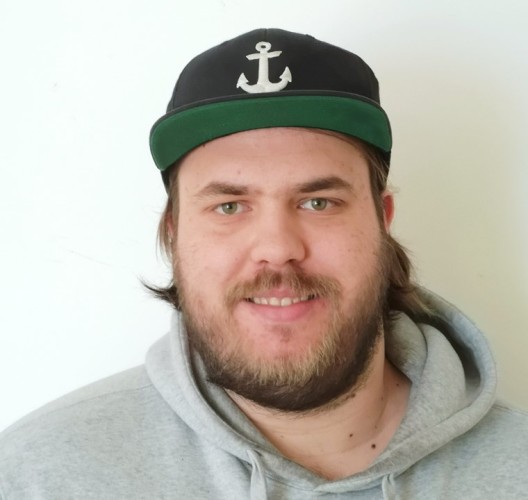
Maximilian
Hi, I'm Max and I am doing my master’s in Mechanical Engineering. I'm active in the student council and I do a lot of different things there, which you can more or less get to know. Why I decided to study mechanical engineering in Darmstadt you can find out here.

Stefan
Hey, I'm Stefan and I'm studying mechanical engineering. What I realised during my studies is that it doesn't matter whether you're a freshman, a Master's student, a doctoral student or a professor – what unites us all is our enthusiasm for understanding and helping to shape the world. You can find out why I chose to study mechanical engineering at TU Darmstadt and what fascinates me about mechanical engineering in my articles.
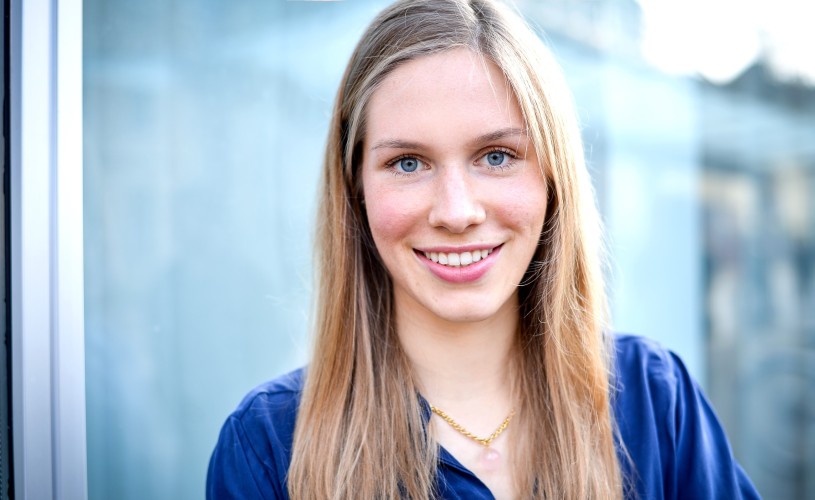
Imke
Hello everybody, I am Imke Lorenz and I am working on my PhD in the Department of Mechanical Engineering at the TU Darmstadt. Even though I spent some time abroad during my bachelor’s and master’s, I completed most of my studies here, so that I can call myself a creation of Darmstadt's mechanical engineering. I am more than happy to answer any questions you may have about my experiences, the university, the region, and the various possibilities. It was only during my studies that I really realised mechanical engineering is so much more. It always keeps pace with current changes and has many exciting fields of application associated with it, which I can research today.

